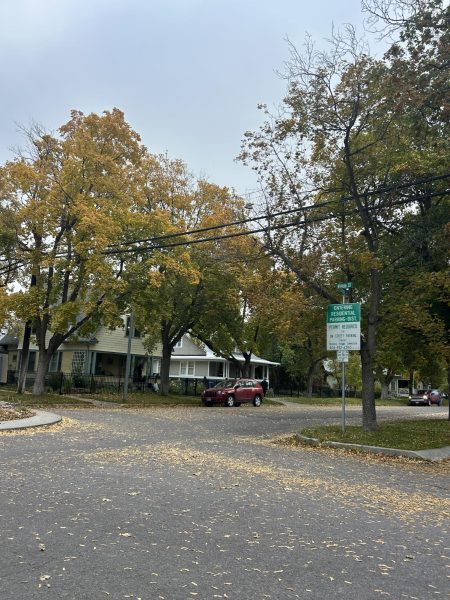Why Spanish Classrooms Should Stop Using Spanish Names
The use of Spanish and other target language names in the classroom isn’t fun. It’s an example of cultural appropriation.
If, on the first day of school, your math teacher instructed you to choose a name such as “Fraction”, “Inequality”, or “Geometry” to go by for the rest of the year, it would be perceived as strange and unnecessary. It doesn’t contribute to the learning environment, it makes things more difficult for the students and teachers, and it’s just plain silly. Your given name works just fine for solving math problems, and changing it doesn’t make you any better at algebra.
However, if this same scenario were to occur in a Spanish class, it would be accepted. Spanish teachers across the country normalize the practice of having their students choose so-called “Spanish names” by claiming that it brings your brain into the Spanish classroom. But if this isn’t necessary for other classes, why is it such a common practice when studying a foreign language?
For starters, the adoption of “Spanish names” by white anglo people is cultural appropriation, plain and simple. Cultural appropriation can be difficult to understand, but it is best explained as the practice of a dominant culture taking something from a minority, and using it. Using it in a way that benefits them and hurts the minority. Using it without understanding the cultural significance behind it. Using it in a way other than what was intended.
Here at Hellgate High School, we pride ourselves on being accepting and celebrating diversity, but the use of “Spanish names” in our classrooms goes against those very principles. Names have historical and religious significance, so it can be really offensive to use names from another culture without understanding the cultural meaning and significance behind it. Take, for example, the name Alfonso. A name typically reserved for boys, it means “noble and ready”, and was the name of the kings of several ancient regions in Spain. This name should not be misappropriated or used by someone who doesn’t understand the historical context of the name.
Also, the emphasis on using “Spanish names” can make students feel like they are not worthy of being able to speak Spanish. It perpetuates the stereotype that everyone who is named Juan can speak Spanish fluently, but someone named John cannot. It teaches students that you need a new identity in order to speak a new language. However, a name does not affect your ability to speak a language. All students are capable of learning and mastering a foreign language, and they don’t need to change their name to do so. If you go to a Spanish speaking country, people won’t start magically calling you by a new name.
One other harmful aspect of choosing Spanish names is that it delegitamizes Latinos and Spanish speaking people who don’t have stereotypically Spanish-sounding names. My mom was born in Guatemala, but her name is Brenda. My uncle is named Joseph, not José. They are both Latinos and speak Spanish fluently, so shouldn’t their names qualify as Spanish names?
However, in many Spanish classes, their names would not qualify because they don’t “sound Spanish”. One must ask, what, then, makes a name “Spanish”? Any name can be a Spanish name if it is used by someone who speaks Spanish.
There are also many names that are widely considered to be a “Spanish name”, but in reality, they belong to many other languages as well. One example is the name Maria. While it may sound Spanish, and while it is true that it is a common name in Spanish speaking countries, it is popular worldwide. In the United States alone, 527,873 girls have been named Maria since 1880. I know a Maria who is Greek, and a Maria who is Italian. There is even a famous tennis player named Maria Sharapova who is Russian.
The practice of classifying certain names as “Spanish names” because they sound stereotypically Spanish is ridiculous. What exactly is having a Spanish name supposed to teach you? While some language teachers argue that it helps improve your pronounciation of authentic names, there are many other ways to practice pronounciation without appropriating another culture.
The fact that adopting a new name is fun should not be a valid reason for doing do, especially when the only class that does so is your language class. When History, English, and Math teachers start assigning their students names related to the subject matter, then maybe we can reopen the dialogue on using Spanish names. Until that day comes, high schools like Hellgate should just close this chapter, retire this offensive practice, and focus on education, not appropriation.

Just a girl who fell in love with journalism and never looked back. This is my third year with the Lance and my second year as Co-Editor. I also play soccer...




